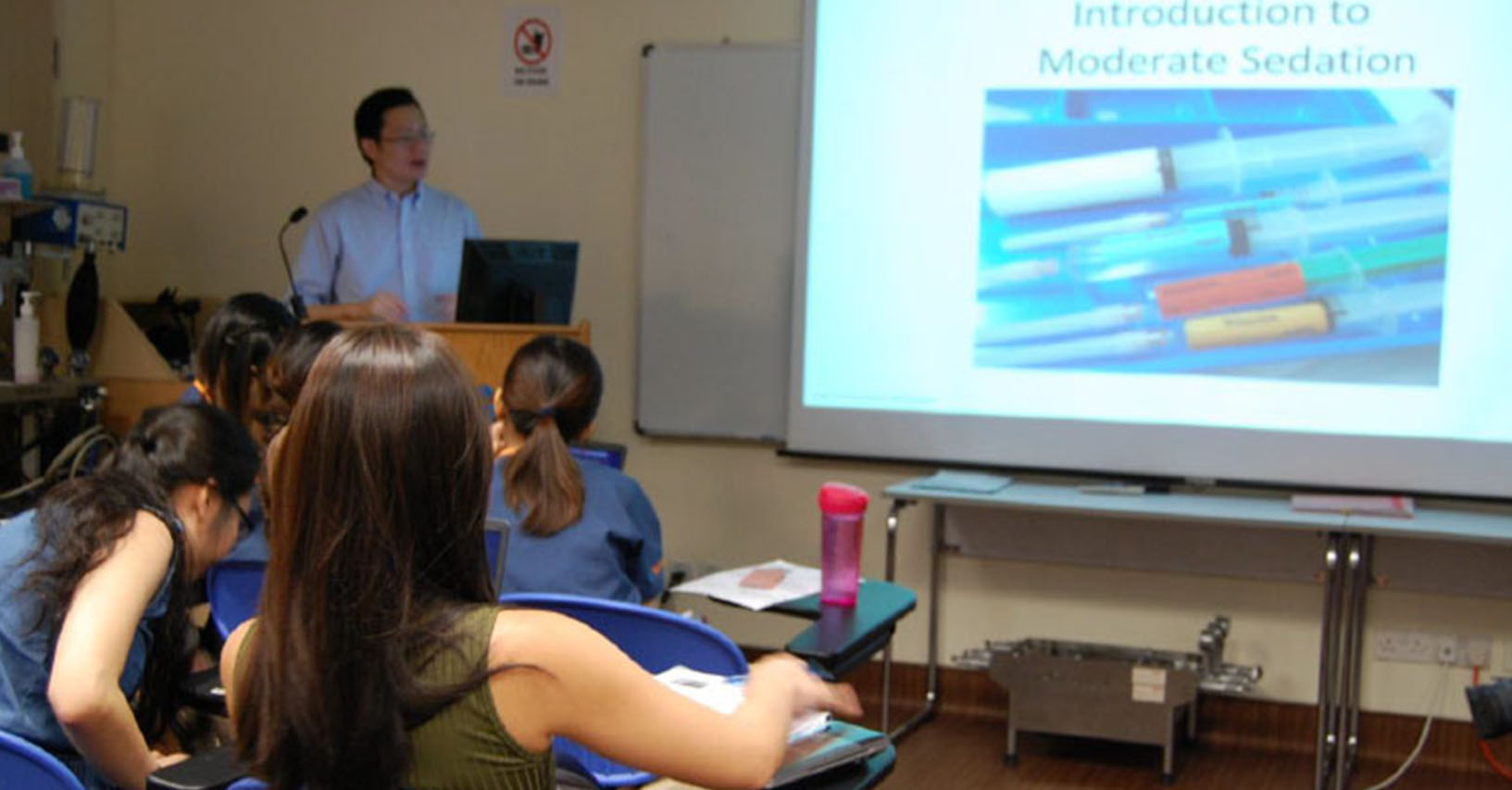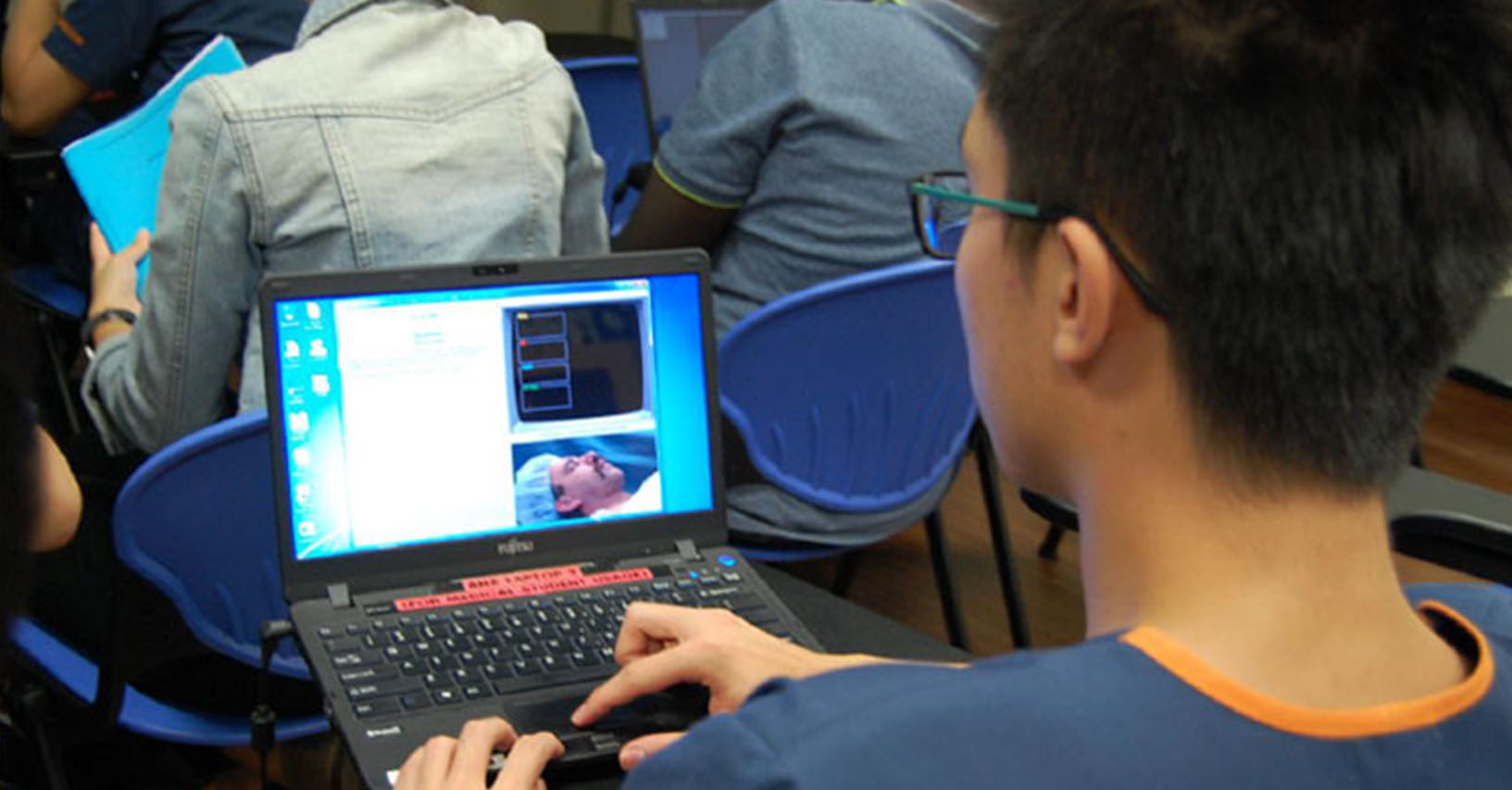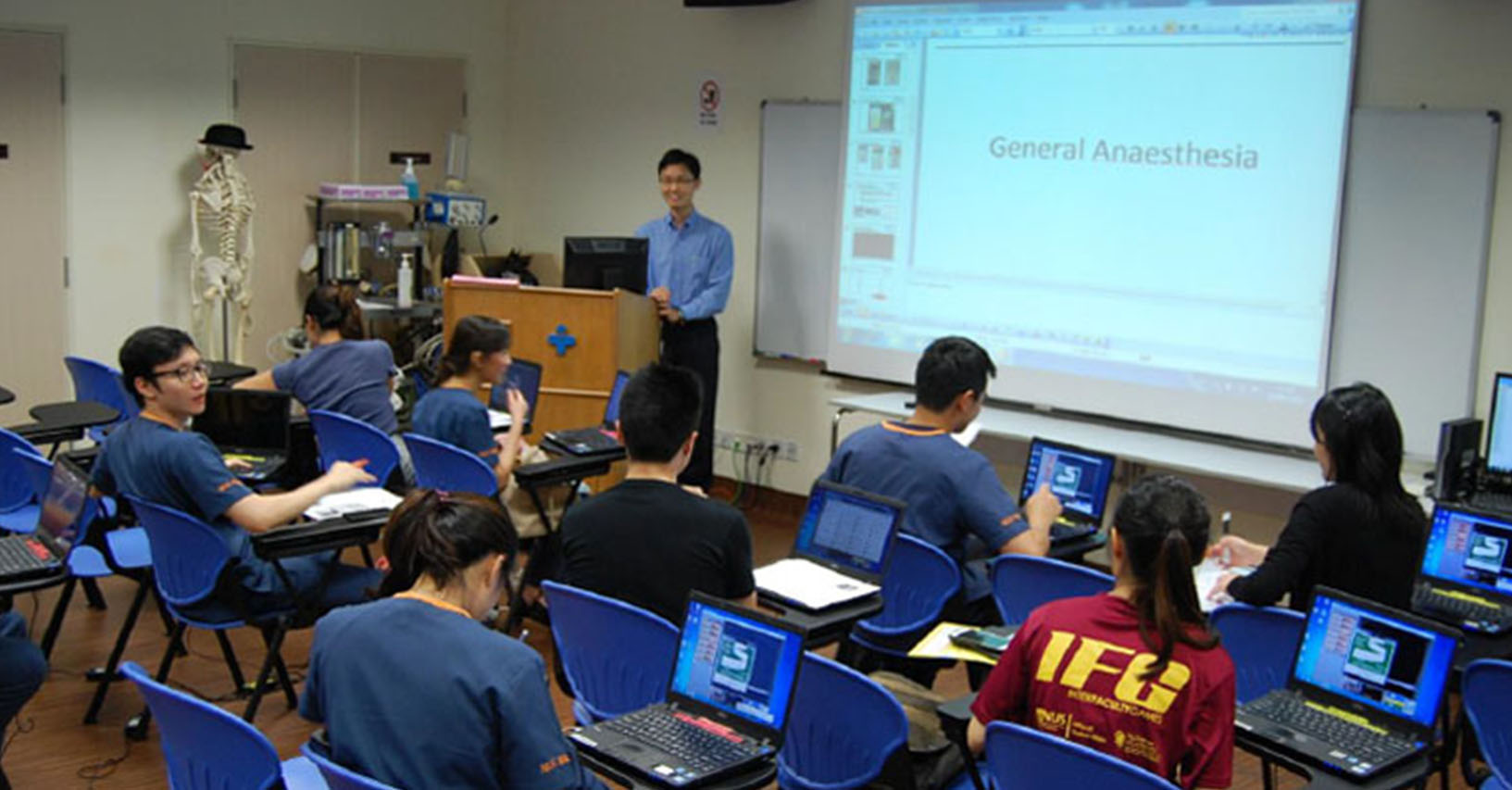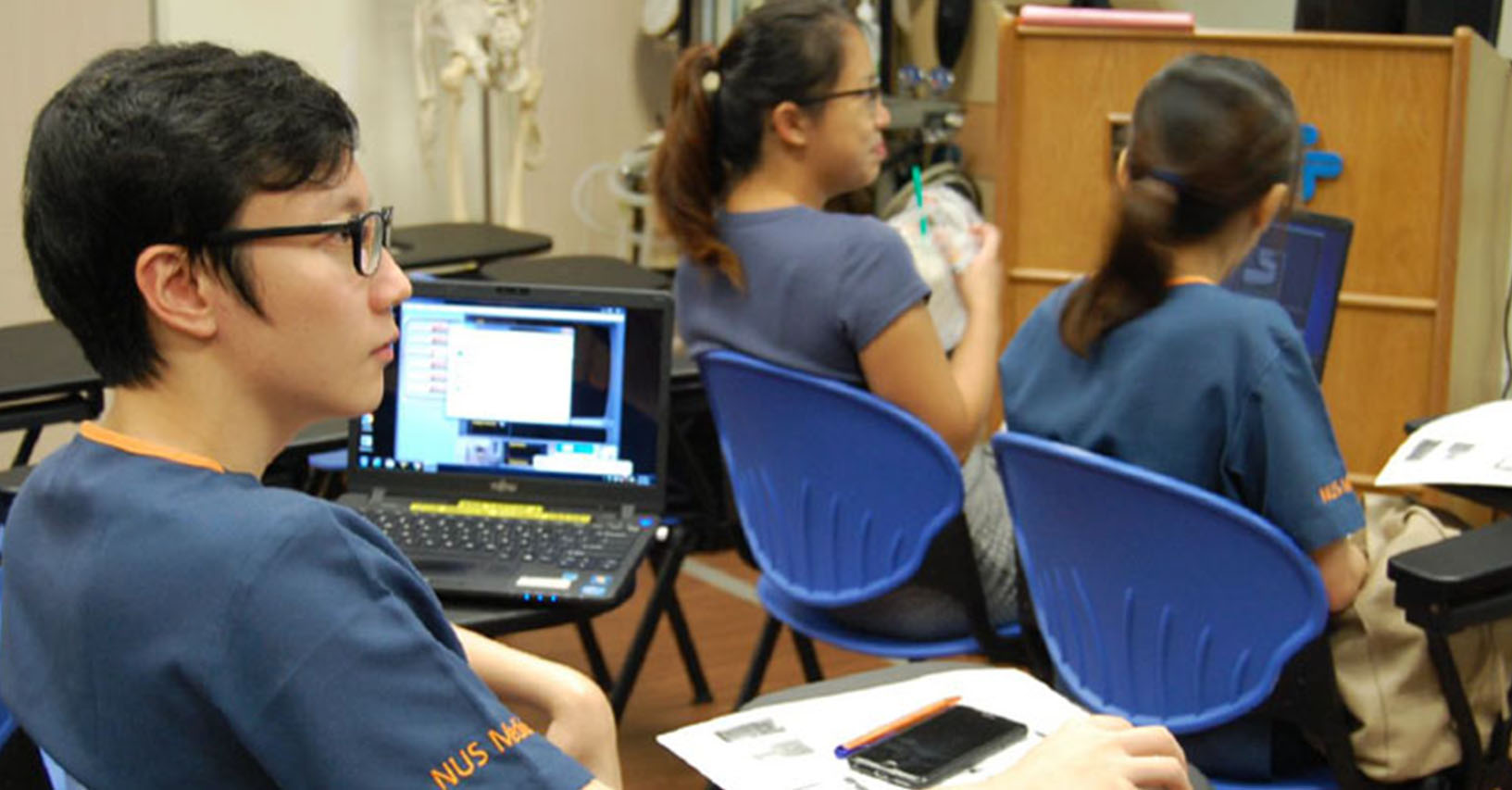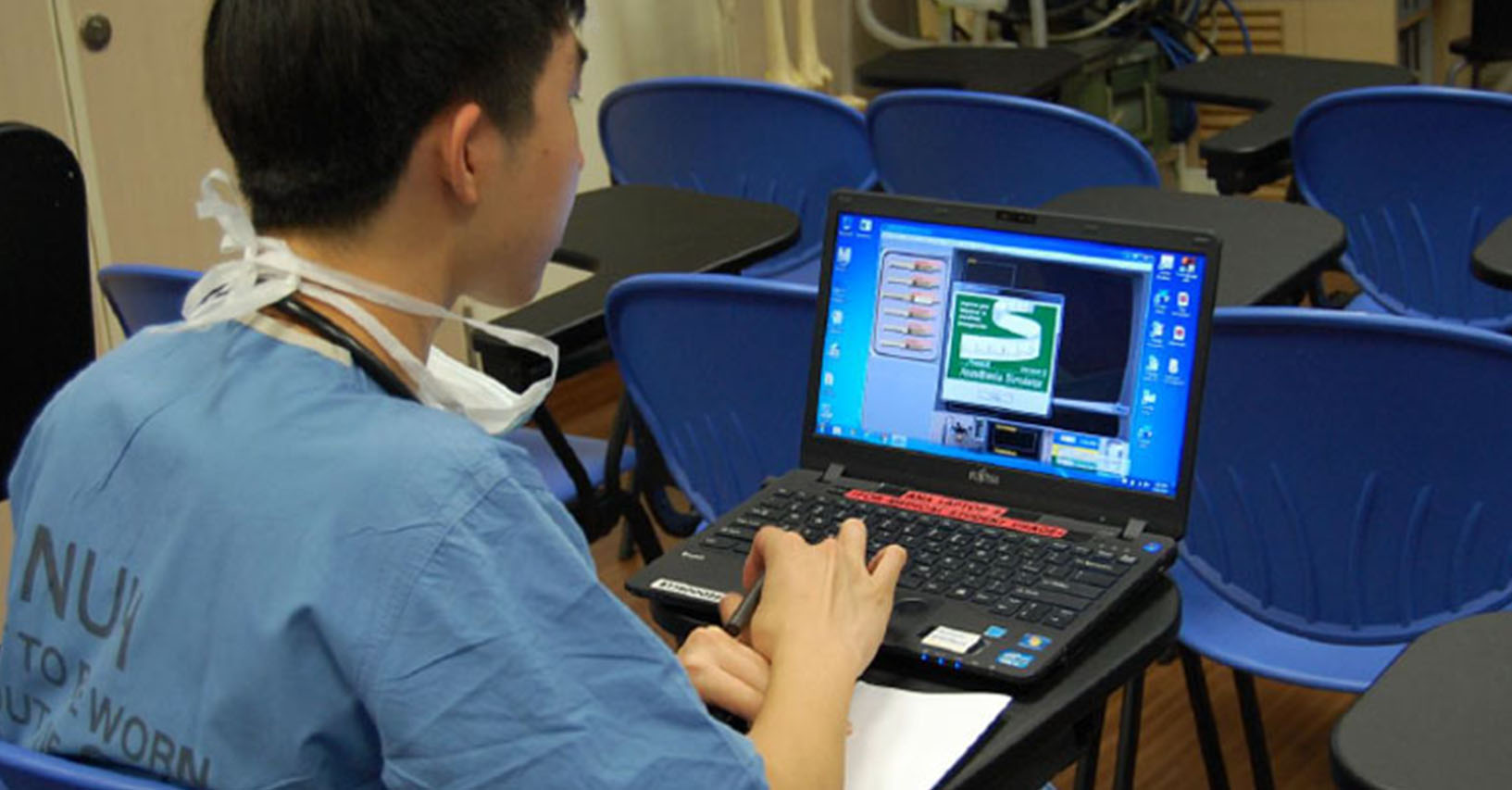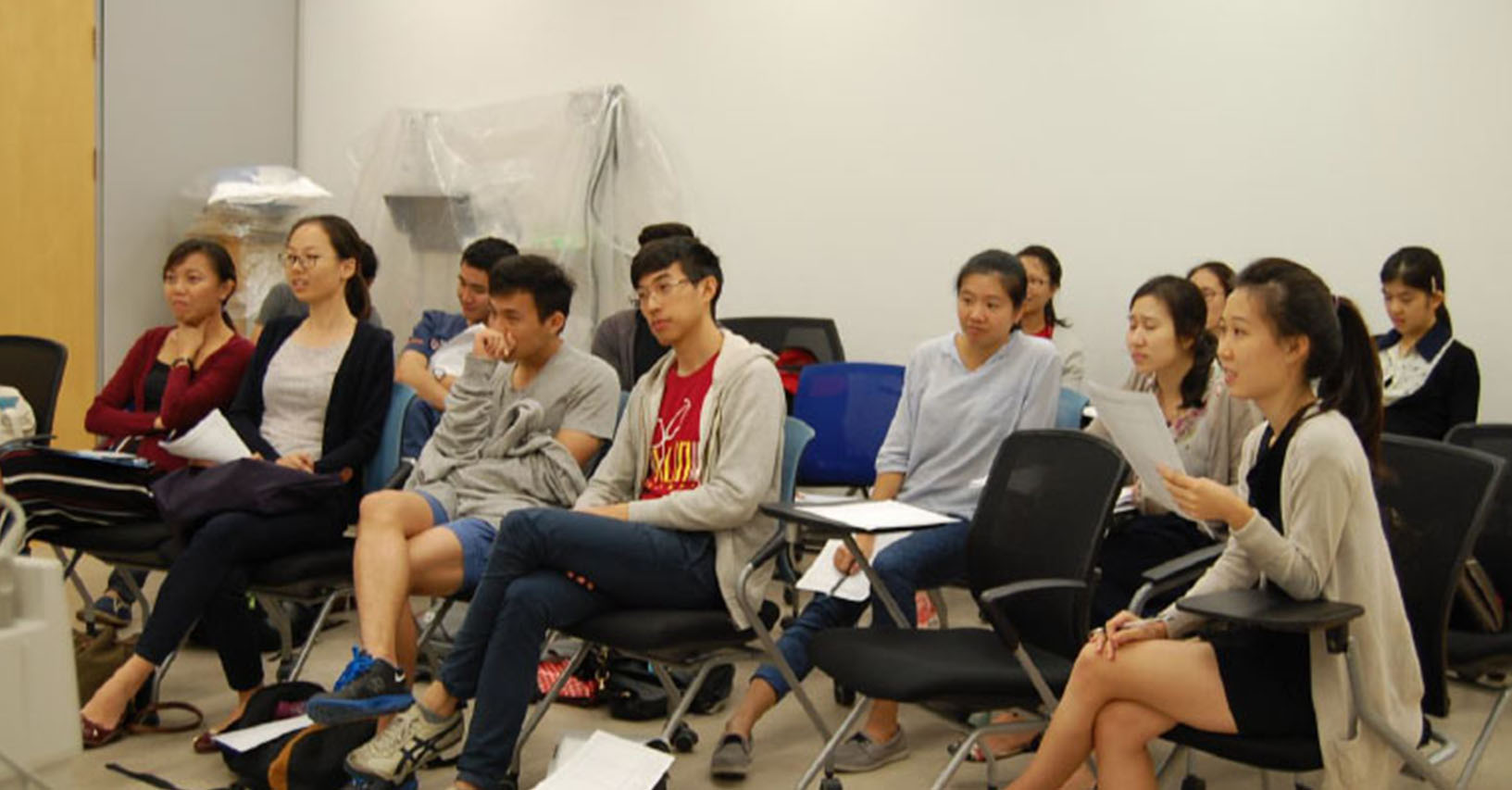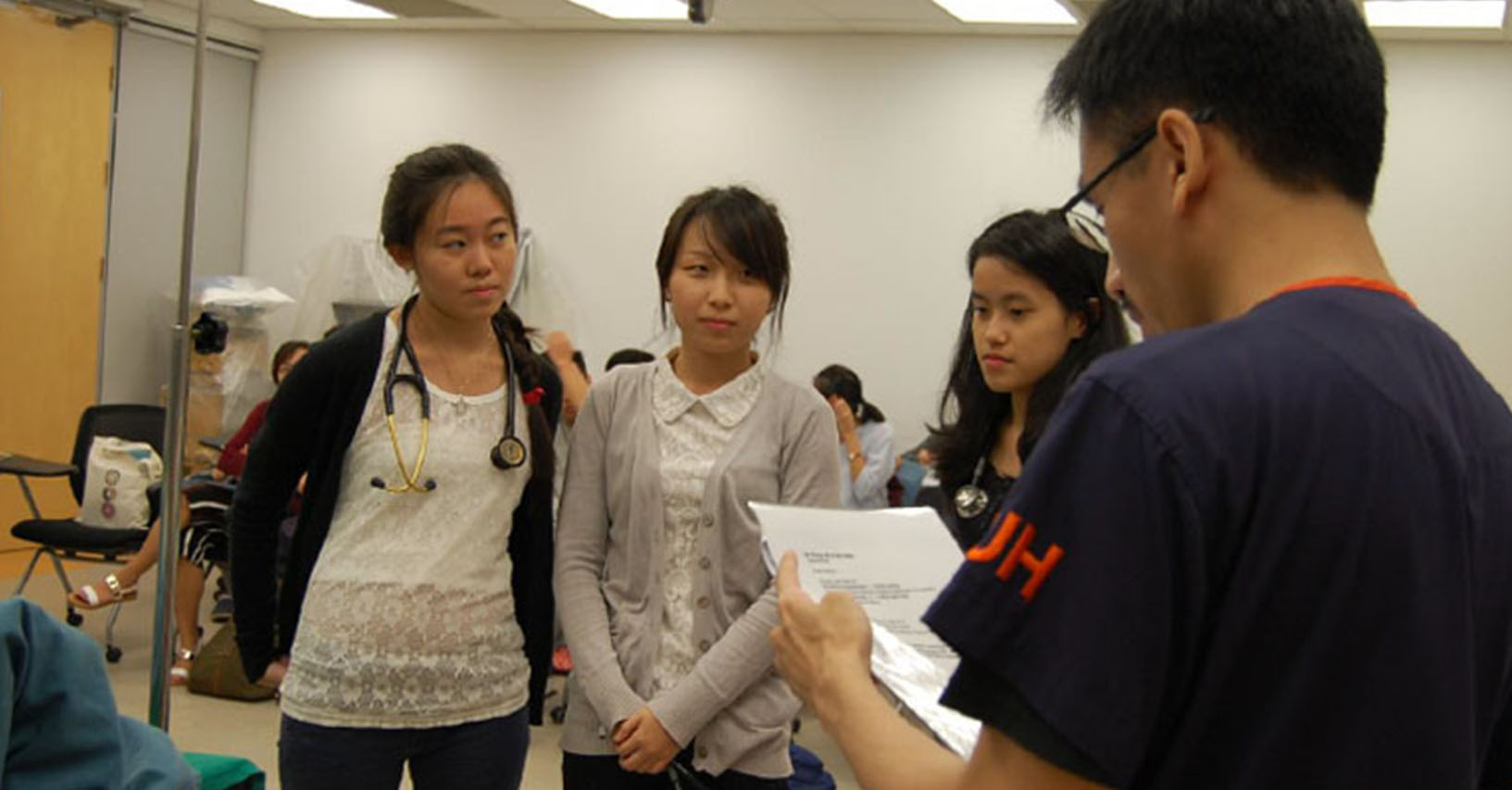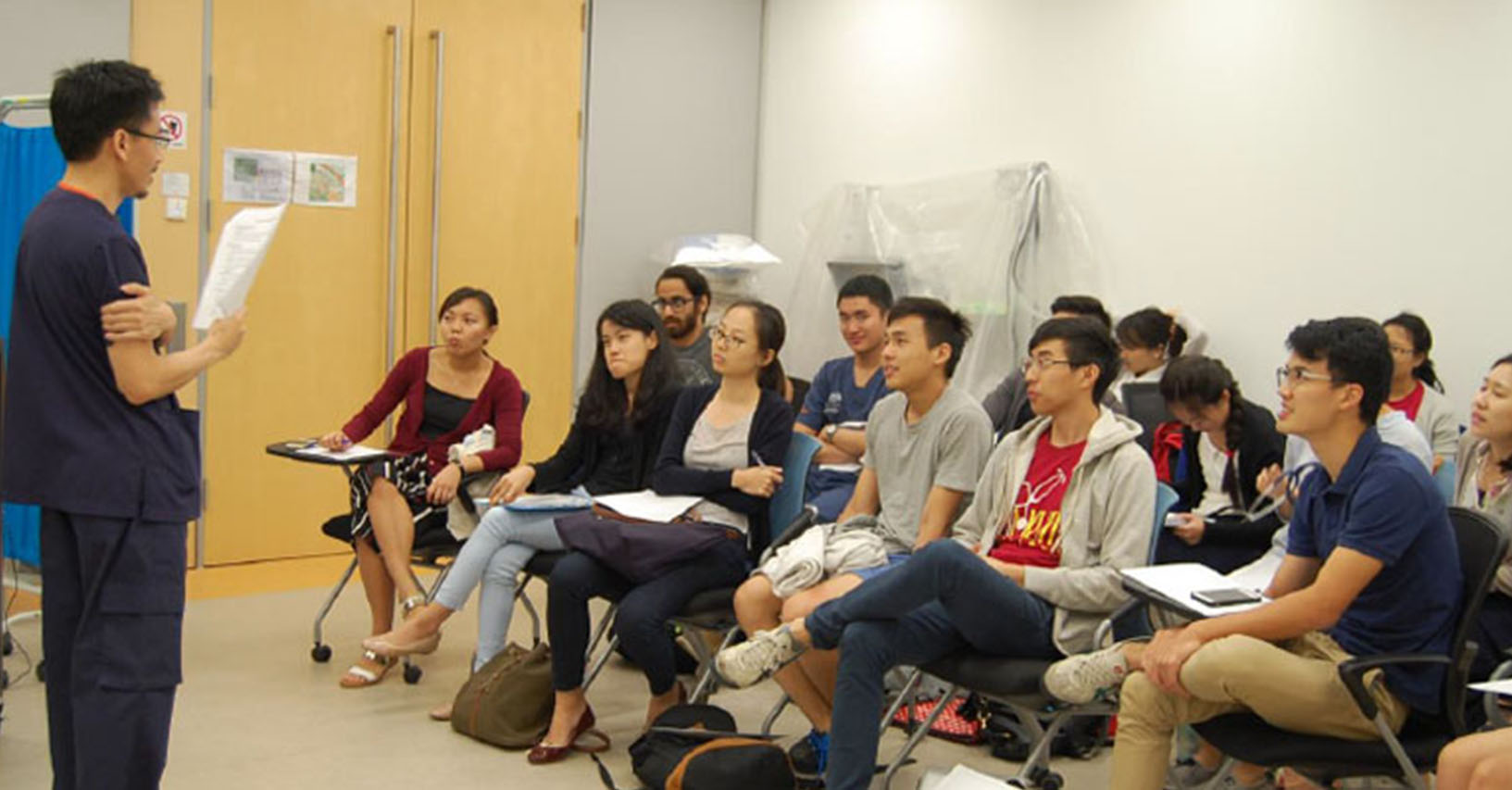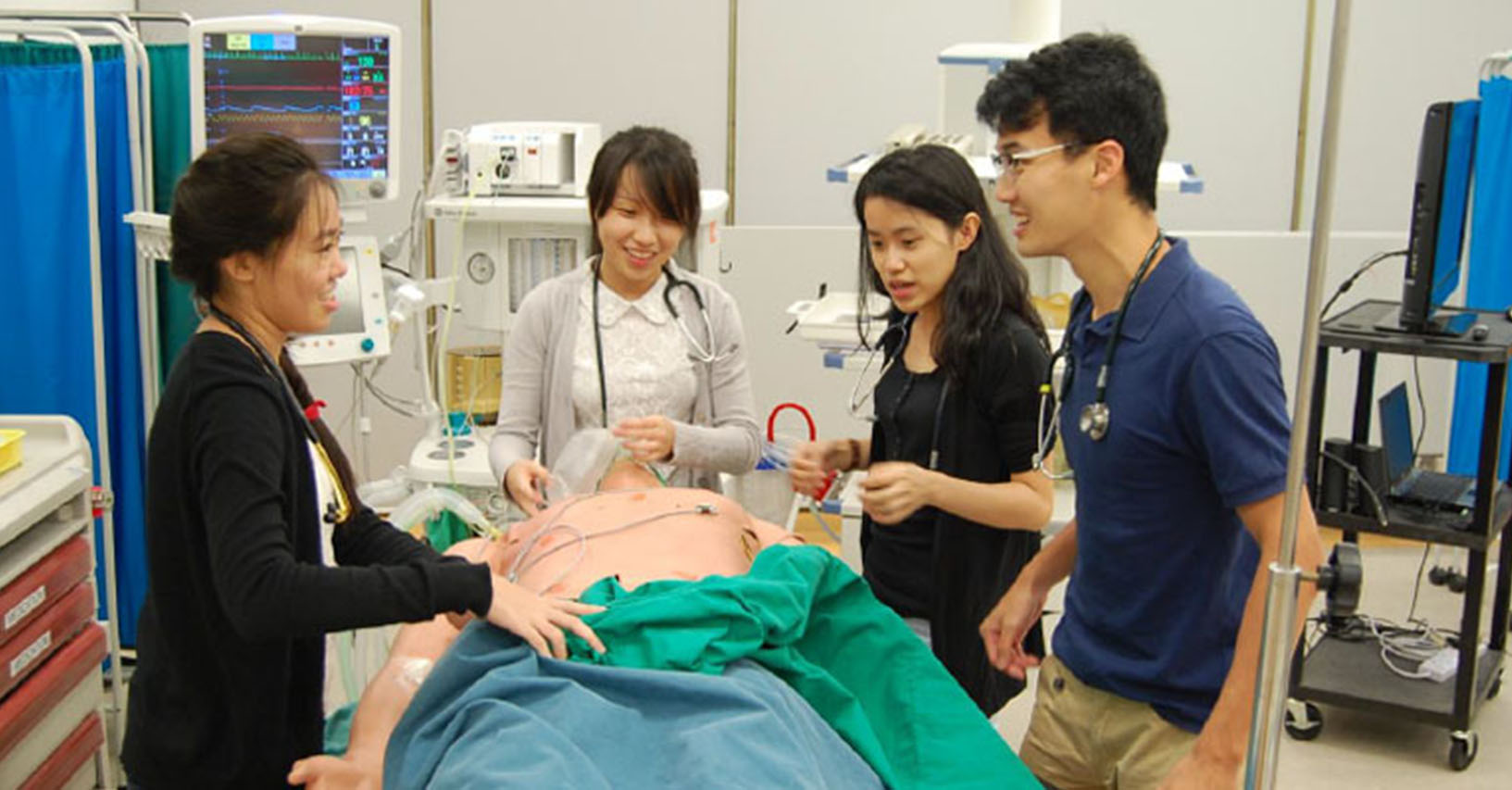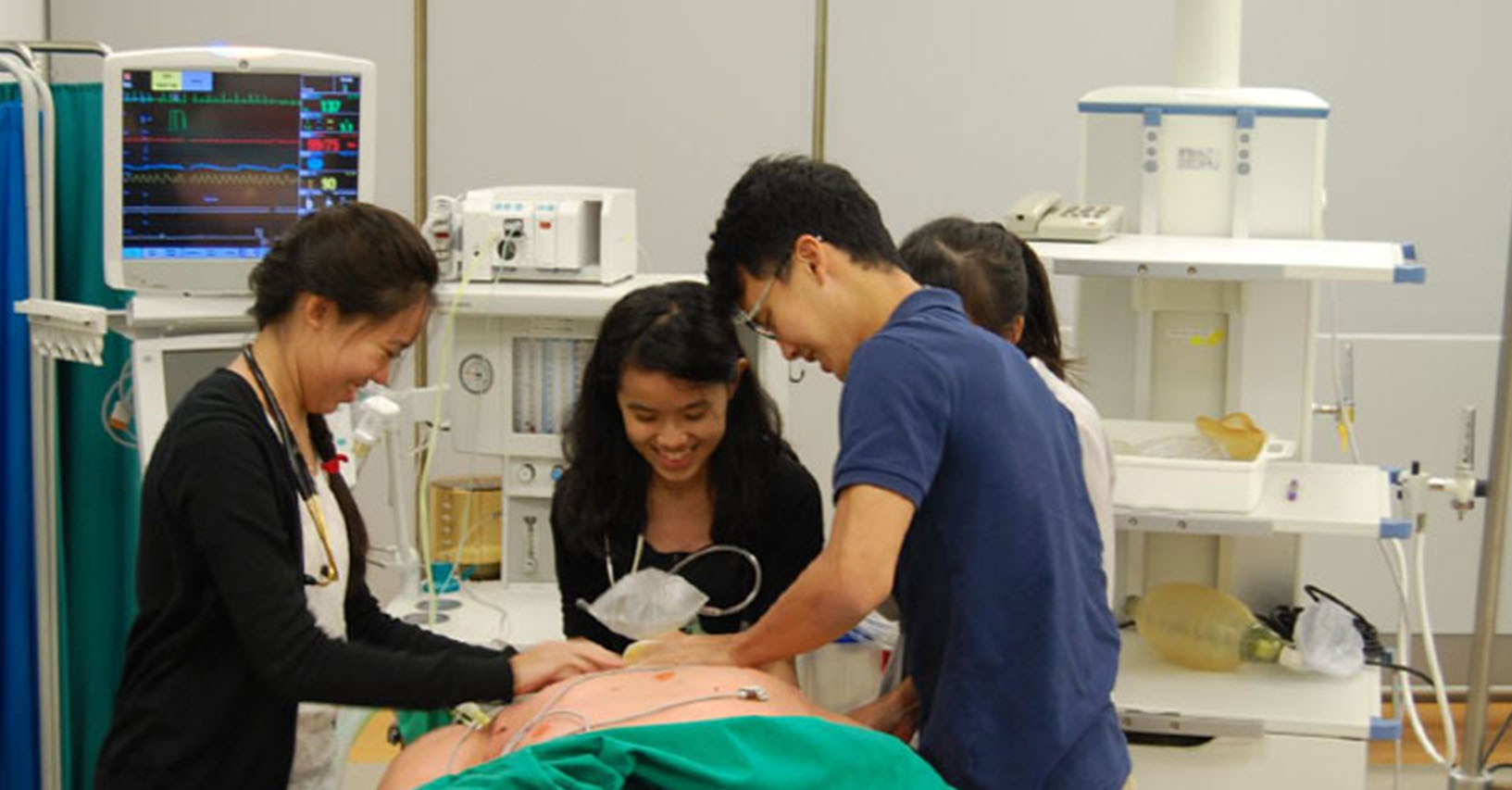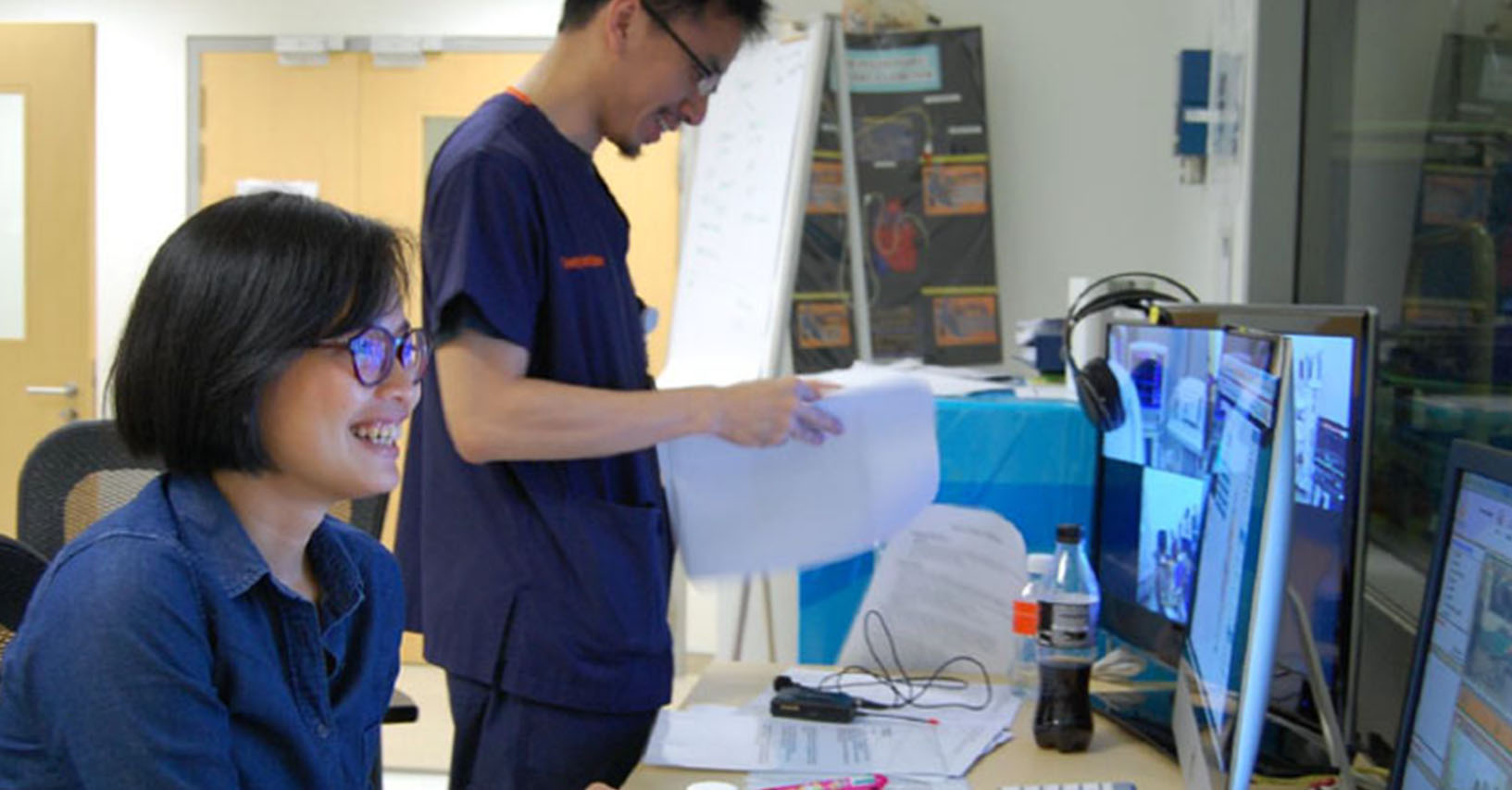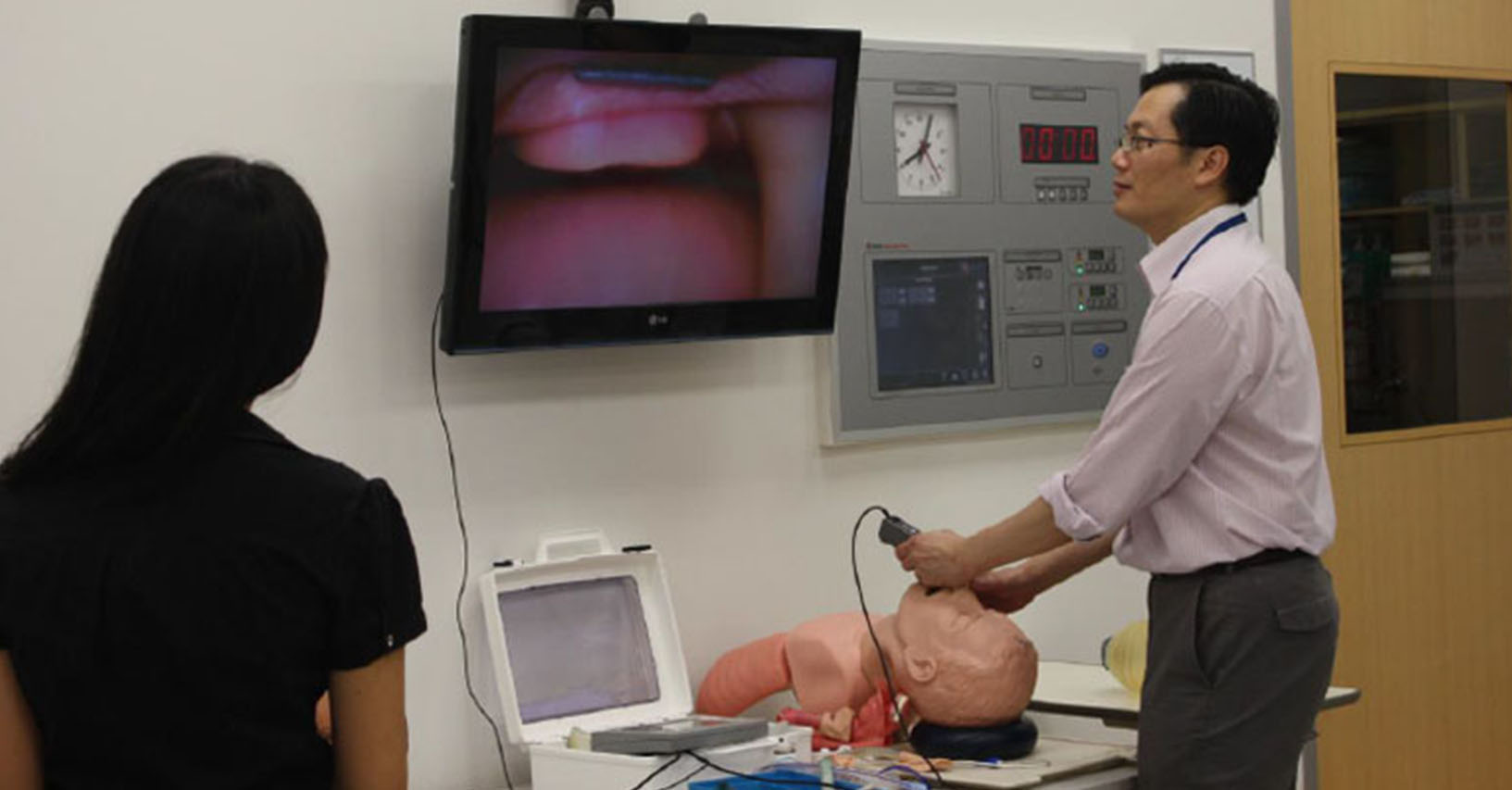Undergraduate Programme
Medical students from NUS Yong Loo Lin School of Medicine undergo a two-week posting in Phase IV of their medical school as part of their Acute Care module. The Acute Care module comprises of a 6-week posting block, of which 4 weeks is allocated to Emergency Medicine and two weeks to Anaesthesia. Students are taught the practice of anaesthesia using lectures, simulation and tutorials in the operating rooms. Topics are tailored to ensure that students understand the benefits and risks of different types of anaesthesia, learn how to prepare patients for anaesthesia and surgery, to anticipate and recognize postoperative complications, and understand the output of physiological monitoring systems. Core clinical skills such as bag and mask, intravenous cannulation, laryngeal mask insertion, and endotracheal intubation are taught using simulation models and under guided supervision on patients. Students are continuously assessed during their posting, and undergo a combined Acute Care end-of-posting test. Students are also assessed with one modified essay question, one clinical skills station, and with multiple choice questions at the end of Phase IV. NUS Anaesthesia also offers 2-4 week-long elective postings for Phase IV students after their examinations.
NUS Anaesthesia works closely with our partners in the restructured hospitals in Singapore through a working committee with representations from every hospital. A standardized curriculum and assessment ensures that all students are taught uniformly and have equal opportunities to learn regardless of which hospital the student is posted to. This is necessary as the breadth of surgery, and by extension the anaesthesia diversity, varies considerably between hospitals.
Each year, NUS Anaesthesia awards a book prize for the best NUS Medicine student in Anaesthesia, based on academic performance, continuous assessment scores, and research output. In 2016, the award went to Dr Zhang Wei, who together with her mentors Dr Sophia Chew and Assoc Prof Ti Lian Kah, published her research work entitled "A Clinical Prediction Model for Postcardiac Surgery Atrial Fibrillation in an Asian Population" in the journal Anesthesia Analgesia in 2016.
NUS Anaesthesia has consistently achieved good student feedback scores for both curriculum and quality of teaching. In 2016, NUS Anaesthesia was awarded NUS Medicine Undergraduate Teaching Excellence Award (Department) AY2015/16, while NUHS Anaesthesia won the NUS Medicine Teaching Excellence Award AY2015/16. KK Women Anaesthesia, led by Dr Yim Chik Foo, had the honour of being one of only two clinical departments in the School to achieve a perfect feedback score. In addition, Dr Deborah Khoo was awarded the Dean’s Award for Outstanding Teacher in 2016.


